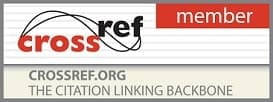International Journal of Homoeopathic Sciences
2022, Vol. 6 Issue 1, Part B
A randomized control trail to assess the efficacy of homoeopathic treatment on unintentional procrastination in depression, anxiety and stress
Author(s): Dr. Justina M Steefan, Dr. Girish Navada UK and Dr. Siddesha G
Abstract:
Background: Even though Procrastination is common it has many consequences. It has been linked to a number of negative associations, such as depression, irrational behavior, low self-esteem, anxiety, poor academic performance and stress
Unintentional procrastination is a strong marker of psychopathology, which often left unrecognized. There can be various causes underlying the unintentional procrastination so it is important to treat this condition before it further advances.
Methodology: The study of unintentional procrastination in Depression, Anxiety and Stress was conducted in patients who reported to the OPD, IPD and Peripheral OPDs of Father Muller Homoeopathic Medical College Hospital, Deralakatte, Mangaluru. Comparative study included 30 individuals in two groups of 15 each, case group on homoeopathic treatment with psychotherapy and control group with placebo and psychotherapy were selected for the study by randomized sampling with control group All the diagnosed cases of depression, anxiety or stress and those who were presenting with the symptoms satisfying the diagnostic criteria as per ICD 10 was evaluated with DASS-21 scale and unintentional procrastination scale before and after the treatment. The remedy selection in individual case in the case group is based on the constitutional approach.
Results: In this study there was no gender variation for unintentional procrastination in Depression, Anxiety and Stress; the maximum prevalence was noted in the age groups of 16 – 20 yrs (26.66%) that is 4 patients in the case group whereas it is noticed that there is a maximum of 3 cases in the age group of 26-30 yrs, 41-45 yrs and 46-50 yrs. According to the clinical presentation 8 cases were diagnosed as F41.1 (26.66%) Generalized anxiety disorder. Among the homoeopathic remedies prescribed in the case group, Lycopodium was the most indicated remedy (3 cases, 20%). A majority of 11 patients (73.333%) had shown significant improvement in the case group, the condition of 3 patients (20%) remained the same and only 1 patient’s condition had not improved (6.66%) in the case group whereas in the control group among the 15 patients, 9 patients (60%) showed significant improvement 4 cases (26.66%) the condition remained the same and the condition of 2 patients had not improved (13.33%).
Conclusion: From the analysis of the results obtained from this study it is clear that homoeopathic treatment with psychotherapy is more effective than the treatment with placebo with psychotherapy in the management of Unintentional procrastination in Depression, Anxiety and Stress.
Pages: 86-91 | 787 Views 295 Downloads

How to cite this article:
Dr. Justina M Steefan, Dr. Girish Navada UK, Dr. Siddesha G. A randomized control trail to assess the efficacy of homoeopathic treatment on unintentional procrastination in depression, anxiety and stress. Int J Hom Sci 2022;6(1):86-91. DOI: 10.33545/26164485.2022.v6.i1b.519







